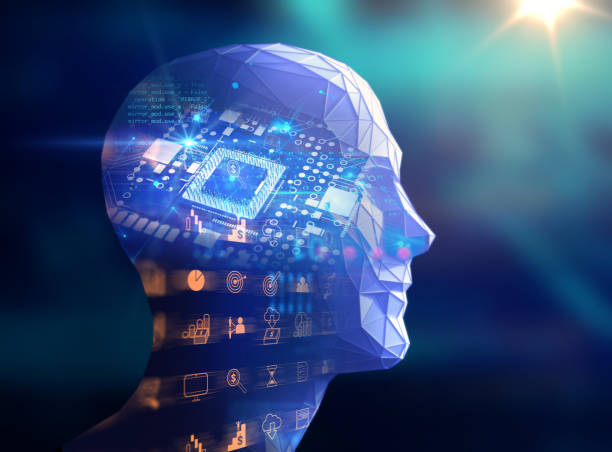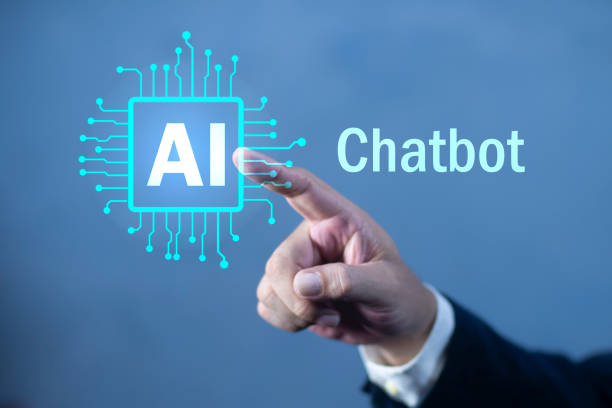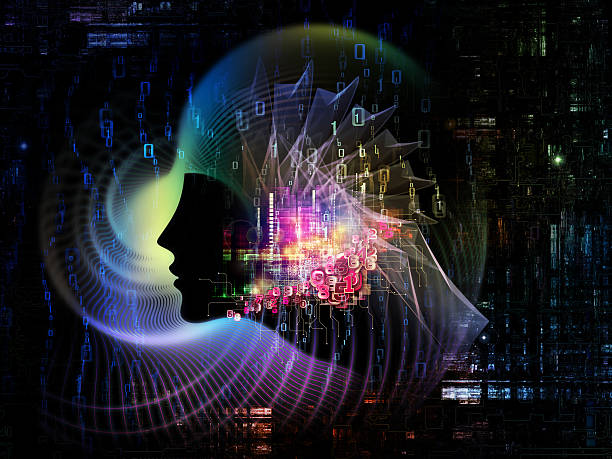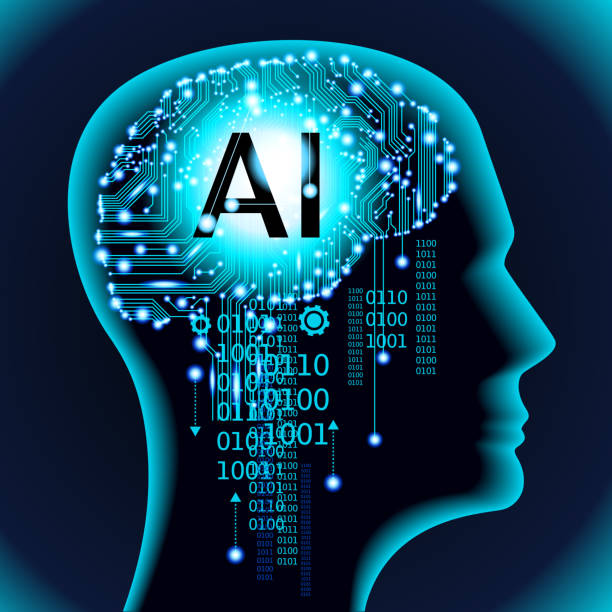What is Artificial Intelligence? Definitions and Basic Concepts

What is Artificial Intelligence? Definitions and Basic Concepts
#ArtificialIntelligence (AI) is a branch of computer science that deals with building intelligent machines, machines that are capable of performing tasks that usually require human intelligence.
These tasks include learning, reasoning, problem-solving, perception, and understanding natural language.
In other words, the goal of #ArtificialIntelligence is to create systems that can think and act like humans.
The exact definition of #ArtificialIntelligence is a topic that has always been debated.
Alan Turing, a pioneer of #ArtificialIntelligence, proposed a test based on which, if a machine can deceive a human in a conversation and convince them that they are talking to a real human, that machine can be considered intelligent.
This test is known as the “Turing Test.”
The field of #ArtificialIntelligence is very broad and includes various approaches, from Rule-based systems to Artificial Neural Networks and Machine Learning Algorithms.
Machine learning itself is a subset of #ArtificialIntelligence that allows machines to learn from data and improve their performance without being explicitly programmed.
These basic concepts provide the basis for understanding the applications and future advances in the field of #ArtificialIntelligence.
Did you know that 94% of users’ first impressions of a business are related to its website design? With a professional corporate website design by **Rasaweb**, turn that first impression into an opportunity for growth.
✅ Attract more customers and increase sales
✅ Create credibility and trust in the eyes of the audience⚡ Get free website design consultation!
A brief history of artificial intelligence from the beginning to today

A brief history of artificial intelligence from the beginning to today
The history of #ArtificialIntelligence dates back to the 1950s, when scientists and researchers proposed the idea of building thinking machines.
The Dartmouth Conference in 1956 was a turning point in this field and is recognized as the official beginning of #ArtificialIntelligence.
At this conference, prominent researchers such as John McCarthy, Marvin Minsky, and Allen Newell gathered to explore the possibility of building machines that could solve problems and make decisions.
In the 1960s and 1970s, significant advances were made in the field of Expert Systems.
These systems stored specialized knowledge in a specific domain and could be used to solve complex problems in that domain.
However, hardware limitations and a lack of data prevented further progress in #ArtificialIntelligence, and a period of disillusionment known as the “AI winter” arrived.
In the 1980s, with the emergence of more powerful computers and the development of machine learning algorithms, #ArtificialIntelligence was revived.
Today, with significant advances in Deep Learning and increasing volumes of data, #ArtificialIntelligence is rapidly advancing and is used in various fields such as self-driving cars, facial recognition, and natural language processing.
Types of Artificial Intelligence Based on Ability and Performance

Types of Artificial Intelligence Based on Ability and Performance
#ArtificialIntelligence can be divided into several categories based on ability and performance.
A common classification divides #ArtificialIntelligence into three main types.
Narrow or Weak AI refers to systems that are designed to perform a specific task and perform at or above human level in that task.
Most of today’s #ArtificialIntelligence systems fall into this category, such as facial recognition systems or search engines.
General or Strong AI refers to systems that can perform any intellectual task that a human is capable of doing.
Creating strong #ArtificialIntelligence is still a major challenge, and no strong #ArtificialIntelligence systems have yet been created.
Super AI refers to systems that surpass human intelligence and can outperform humans in all fields.
This type of #ArtificialIntelligence is still hypothetical and has the potential to create fundamental changes in society and human civilization.
| Type of Artificial Intelligence | Description | Examples |
|---|---|---|
| Weak AI (Narrow AI) | Focused on performing a specific task | Facial recognition systems, search engines, recommender systems |
| Strong AI (General AI) | Ability to perform any intellectual task that humans are capable of doing | Does not yet exist (hypothetical concept) |
| Super AI | Intelligence beyond human intelligence | Does not yet exist (hypothetical concept) |
Machine Learning and its Role in Artificial Intelligence

Machine Learning and its Role in Artificial Intelligence
Machine Learning is one of the most important sub-branches of #ArtificialIntelligence.
Machine learning allows machines to learn from data and improve their performance without being explicitly programmed.
In other words, instead of programmers manually coding the rules and algorithms needed to perform a task, machines use machine learning algorithms to identify patterns and relationships in the data and, based on that, create models that can be used for prediction, decision-making, and performing other tasks.
Machine learning algorithms are divided into different types, including Supervised Learning, Unsupervised Learning, and Reinforcement Learning.
Each of these methods is suitable for solving specific problems.
For example, supervised learning is used to predict continuous values or categorize data, while unsupervised learning is used to cluster data and identify hidden patterns in it.
Reinforcement learning is also used to train machines to perform tasks that require sequential decision-making.
Are you tired of your company’s website not meeting your expectations? With Rasaweb, design a professional website that showcases the true face of your business.
✅ Increase attraction of new customers and sales leads
✅ Increase the credibility and trust of your brand with your audience
⚡ Get free website design consultation!
Practical Applications of Artificial Intelligence in Everyday Life

Practical Applications of Artificial Intelligence in Everyday Life
#ArtificialIntelligence is present in many aspects of our daily lives today, although we may not realize it.
Common applications of #ArtificialIntelligence include: Recommender Systems These systems analyze data related to users’ tastes and behaviors to suggest products, movies, music, and other content to them.
Recommender systems are used in online stores, video streaming services, and social networks.
Virtual Assistants Voice assistants like Siri, Alexa, and Google Assistant use #ArtificialIntelligence to understand users’ voice commands and answer their questions.
These assistants can perform tasks such as setting reminders, playing music, and controlling smart devices.
Facial Recognition Facial recognition systems use #ArtificialIntelligence to identify people based on their facial images.
These systems are used in security cameras, smartphones, and social networks.
Machine Translation Machine translation services like Google Translate use #ArtificialIntelligence to translate text from one language to another.
These services have become increasingly accurate and fluent, allowing people to communicate with people who speak other languages.
The Impact of Artificial Intelligence on Various Industries

The Impact of Artificial Intelligence on Various Industries
#ArtificialIntelligence is creating enormous transformations in various industries.
In the Healthcare industry, #ArtificialIntelligence is used for disease diagnosis, drug development, and providing personalized care.
In the Transportation industry, #ArtificialIntelligence is used to develop self-driving cars, optimize routes, and reduce traffic.
In the Finance industry, #ArtificialIntelligence is used for fraud detection, risk management, and providing financial advisory services.
In the Manufacturing industry, #ArtificialIntelligence is used to automate processes, improve product quality, and reduce costs.
In general, #ArtificialIntelligence can help companies increase their efficiency, reduce costs, and offer better products and services.
Challenges and Ethical Concerns Related to Artificial Intelligence

Challenges and Ethical Concerns Related to Artificial Intelligence
Despite its many benefits, #ArtificialIntelligence also brings several challenges and ethical concerns.
One of the most important of these concerns is the displacement of jobs by machines.
By automating various processes, #ArtificialIntelligence can cause many jobs to be lost.
Another concern is bias in #ArtificialIntelligence algorithms.
If the data used to train these algorithms is biased, the algorithms will also provide biased results.
Privacy is also another important concern.
#ArtificialIntelligence systems are used to collect and analyze a lot of data from users, and this can endanger their privacy.
In addition, there are concerns about the use of #ArtificialIntelligence for malicious purposes, such as building automated weapons.
To address these challenges and concerns, it is necessary to develop laws and regulations for the development and use of #ArtificialIntelligence, and ethics should be considered in the design and implementation of #ArtificialIntelligence systems.
| Concern | Description | Possible Solutions |
|---|---|---|
| Job Loss | Automation can lead to unemployment | Retraining the workforce, creating new jobs in the field of artificial intelligence |
| Algorithm Bias | Biased data leads to biased results | Using diverse and unbiased data, continuously evaluating algorithms |
| Privacy Violation | Data collection and analysis can violate privacy | Developing privacy laws, using privacy-preserving techniques |
| Malicious Use | Using artificial intelligence for military or unethical purposes | Developing international laws, controlling the development and use of artificial intelligence |
The Future of Artificial Intelligence: Predictions and Possibilities

The Future of Artificial Intelligence: Predictions and Possibilities
Predicting the future of #ArtificialIntelligence is difficult, but many experts believe that #ArtificialIntelligence will advance dramatically in the coming years.
They predict that Strong AI (General AI) will be created in the not-too-distant future and that #ArtificialIntelligence will play a more important role in our daily lives.
Self-driving cars will become more common, voice assistants will become smarter and more useful, and #ArtificialIntelligence will play a more fundamental role in the diagnosis and treatment of diseases.
However, some experts also warn of the potential dangers of #ArtificialIntelligence and believe that if #ArtificialIntelligence is not properly controlled, it could be a threat to humanity.
In general, the future of #ArtificialIntelligence is both exciting and concerning, and we need to look at it with care and foresight.
Are you tired of your online store website not generating as much revenue as its potential? Rasaweb, a specialist in professional online store website design, solves this problem for good!
✅ Increase sales rate and revenue
✅ High loading speed and exceptional user experience
⚡ Get free online store website design consultation
Artificial Intelligence Learning Resources for Enthusiasts

Artificial Intelligence Learning Resources for Enthusiasts
If you are interested in learning #ArtificialIntelligence, many resources are available to you.
You can use online courses, books, scientific articles, and conferences to learn the concepts and techniques of #ArtificialIntelligence.
Some of the best online #ArtificialIntelligence courses are offered on platforms such as Coursera, edX, and Udacity.
Also, many books have been published in the field of #ArtificialIntelligence that you can use to learn more deeply about this field.
To stay informed about the latest advances and achievements in #ArtificialIntelligence, you can read scientific articles published in reputable journals and participate in #ArtificialIntelligence conferences.
The Impact of Artificial Intelligence on the Labor Market and Job Opportunities

The Impact of Artificial Intelligence on the Labor Market and Job Opportunities
As mentioned, #ArtificialIntelligence will have a significant impact on the labor market.
While some jobs will be lost due to automation, #ArtificialIntelligence will also create new job opportunities.
Jobs such as Artificial Intelligence specialist, data scientist, machine learning engineer, and data analyst will be in high demand in the coming years.
In addition, #ArtificialIntelligence can help people perform more efficiently and effectively in their current jobs.
For example, #ArtificialIntelligence can help doctors diagnose diseases more accurately and engineers design better structures.
In general, #ArtificialIntelligence will have a profound impact on the labor market, and people need to prepare themselves for these changes.
FAQ
| Question | Answer |
|---|---|
| 1. What is Artificial Intelligence (AI)? | It is a branch of computer science that aims to create machines capable of simulating human intelligence and performing tasks that require human thinking, such as learning, problem-solving, and decision-making. |
| 2. What are the main types of artificial intelligence? | They can be classified into Weak AI (Narrow AI) that focuses on a specific task, General AI that possesses comprehensive human capabilities, and Super AI that exceeds human intelligence. |
| 3. Mention some common artificial intelligence applications in our daily lives. | They include voice assistants (such as Siri and Alexa), recommendation systems (such as Netflix and Amazon), self-driving cars, facial recognition systems, and spam filters. |
| 4. What is the difference between artificial intelligence and machine learning (Machine Learning)? | Artificial intelligence is the broader concept of creating intelligent machines, while machine learning is a subset of artificial intelligence that focuses on enabling systems to learn from data without explicit programming. |
| 5. What is Deep Learning? | It is a subset of machine learning that uses multi-layered artificial neural networks (deep neural networks) to process data and discover complex patterns, and is used in image and speech recognition. |
| 6. What are the main benefits of artificial intelligence? | Improving efficiency and productivity, automating repetitive tasks, making better decisions based on big data analysis, and developing solutions to complex problems in fields such as medicine and science. |
| 7. What are the main challenges facing the development and deployment of artificial intelligence? | They include the need for huge amounts of high-quality data, privacy and security issues, bias in data and algorithms, and high development and maintenance costs. |
| 8. Does artificial intelligence raise ethical or social concerns? | Yes, it raises concerns related to privacy, algorithmic bias, job losses due to automation, and responsibility for errors committed by intelligent systems, and the need for a regulatory framework. |
| 9. How can artificial intelligence affect the future of the labor market? | It can lead to the automation of some routine jobs, but it will also create new jobs that require advanced skills in developing, operating, and maintaining artificial intelligence systems. |
| 10. What are some modern or promising technologies in the field of artificial intelligence? | They include advanced Natural Language Processing (NLP) (such as large language models like ChatGPT), computer vision, robotics, and Generative AI. |
And other services of Rasaweb advertising agency in the field of advertising
Intelligent Customer Journey Map: A combination of creativity and technology for digital branding by optimizing key pages.
Intelligent Digital Advertising: A creative platform to improve digital branding with accurate audience targeting.
Intelligent Conversion Rate Optimization: A fast and efficient solution for digital branding with a focus on SEO-oriented content strategy.
Intelligent Link Building: A creative platform to improve customer behavior analysis using real data.
Intelligent Brand Identity: A combination of creativity and technology for user interaction through accurate audience targeting.
And more than hundreds of other services in the field of internet advertising, advertising consulting, and organizational solutions
Internet Advertising | Advertising Strategy | Advertorial
Resources
What is artificial intelligence and what are its applications?
,What is artificial intelligence (AI)? – In simple terms + its applications and types
,What is artificial intelligence and what are its applications?
,What is artificial intelligence? + Applications of artificial intelligence in various industries
? To promote your business in the digital world and reach the peak of success, Rasaweb Digital Marketing Agency is with you by providing comprehensive and intelligent services.
Our expertise is in increasing your visibility, attracting target customers, and sustainable brand growth. From professional website design and SEO to social media management and advertising campaigns, you will find everything you need to shine online at Rasaweb.
With an experienced and dedicated team, transform the future of your business in the online space. Contact us today and get a free consultation.
📍 Tehran, Mirdamad Street, next to the Central Bank, South Kazerun Alley, Ramin Alley No. 6
✉️
📱 09124438174
📱 09390858526
📞 02126406207




